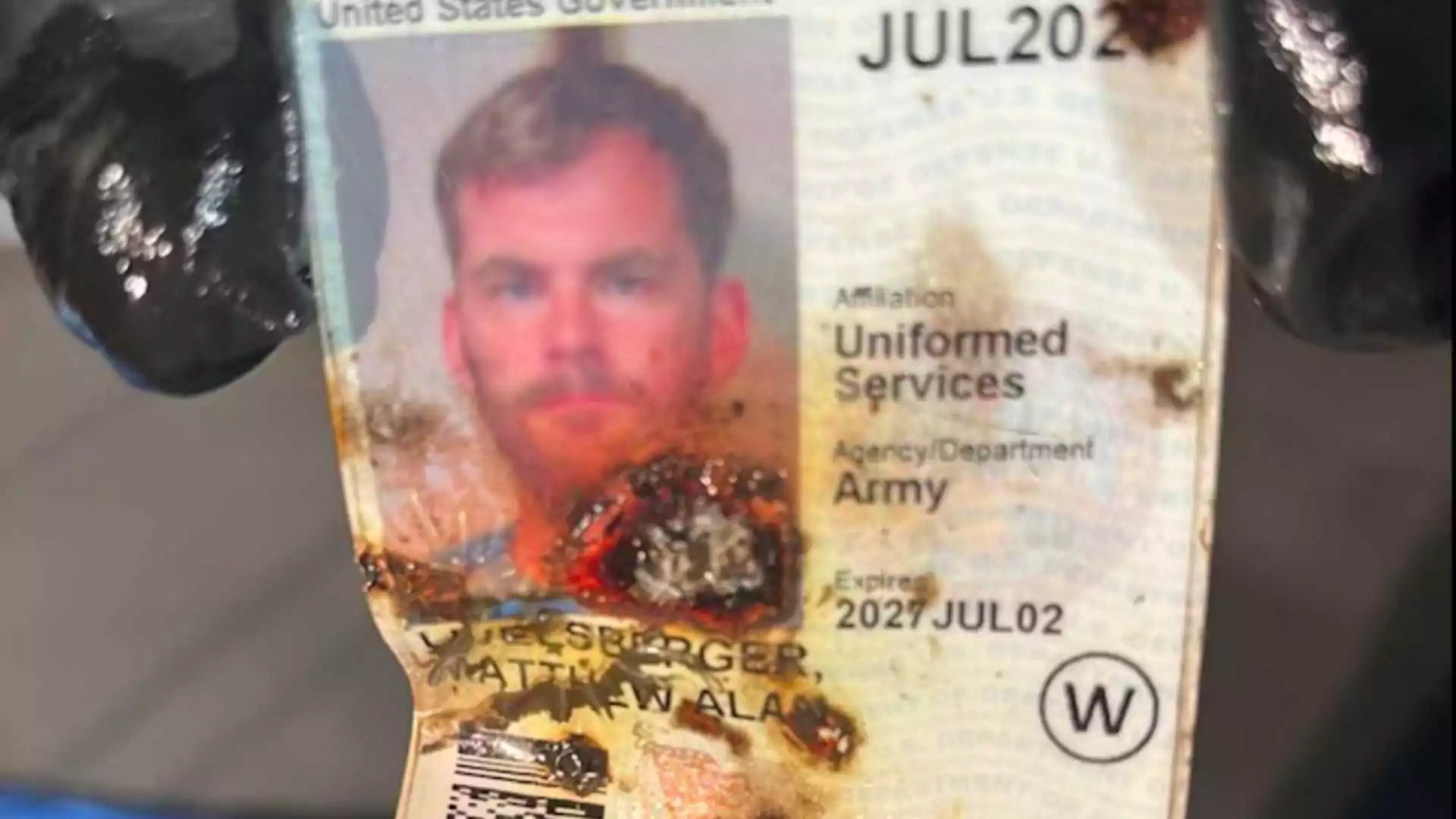Matthew Livelsberger, a 37-year-old decorated Green Beret and member of the elite U.S. Special Forces, tragically ended his life in a dramatic and devastating incident outside the Trump International Hotel in Las Vegas. Investigators revealed on Friday that Livelsberger was suffering from post-traumatic stress disorder (PTSD) and other personal struggles, emphasizing that the event bore no connection to any terrorist organizations.
A Blazing Tesla Cybertruck Explosion
On New Year’s Day, Livelsberger shot himself inside a rented Tesla Cybertruck loaded with fuel containers and fireworks, which subsequently exploded. The blast injured seven people in the valet area of the glass-fronted Trump International Hotel, a property partially owned by the family of President-elect Donald Trump.
Las Vegas Sheriff Kevin McMahill confirmed that Livelsberger’s body, which was burned beyond recognition, was identified through dental records and DNA testing. Investigators noted that the gunshot and the explosion appeared to occur simultaneously.
FBI Rules Out Terrorist Links in Tesla Cybertruck Explosion
“Although this incident is more public and more sensational than usual, it ultimately appears to be a tragic case of suicide involving a heavily decorated combat veteran who was struggling with PTSD and other issues,” said FBI Special Agent Spencer Evans during a press conference.
Evans stated that initial findings from Livelsberger’s phone included two letters in which he expressed guilt and described the emotional toll of having taken lives during his military service. Despite the proximity of the explosion to a Trump-branded hotel, Evans clarified, “Livelsberger held no animosity towards President-elect Donald Trump.”
Furthermore, the FBI found no evidence linking Livelsberger to terrorist organizations. Evans emphasized, “We have not identified any connection between this subject and any other terrorist group.”
Personal and Family Struggles
While PTSD played a significant role, investigators believe personal and family issues may have also contributed to the incident. The emotional weight Livelsberger carried as a combat veteran appeared to culminate in this tragic act, highlighting the mental health challenges faced by many veterans.
Authorities also ruled out any connection between this incident and the deadly attack in New Orleans on the same day. In that case, a U.S. Army veteran with ties to the Islamic State drove a truck into a crowd of New Year’s revelers, killing 14 people before being fatally shot by police.
Legacy of a Struggling Hero
Livelsberger’s suicide brings attention to the struggles of combat veterans coping with PTSD. As a decorated member of the Green Berets, he was highly regarded for his service but ultimately battled personal demons that proved too much to bear.
The explosion outside the Trump International Hotel was a shocking event, but investigators have urged the public to understand it as a deeply personal tragedy rather than an act of violence with broader political or terrorist implications.
This case underscores the urgent need for better mental health support for veterans, ensuring that those who have served their country receive the help they need to cope with the challenges they face after their service ends.



















